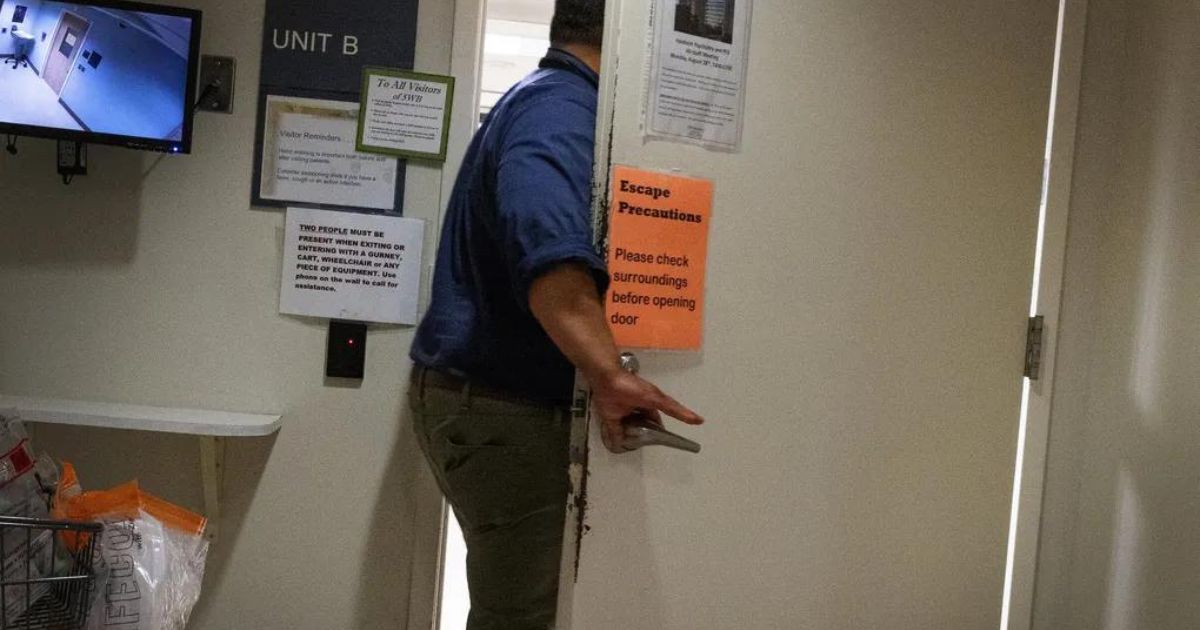A recent report from King County Mental Health Facilities and Recovery Division has shed light on a distressing issue plaguing the Seattle region: individuals in mental or behavioral health crises are being turned away from treatment facilities at an alarming rate.
In 2022 alone, there were 1,173 documented instances of patients being denied care.
Interestingly, the report reveals that the root cause of these rejections is not primarily a lack of available beds, as one might assume.
Instead, it highlights a myriad of other factors contributing to this issue, including patients being deemed too acute or physically unwell, having a history of aggression or the use of restraints, or possessing autism or other cognitive and developmental disabilities.
Ultimately, this data underscores the profound challenges faced by the most vulnerable patients in the mental health system.
It also illuminates the sobering reality that few facilities and their staff are adequately equipped or willing to accept the most complex and challenging cases.
Treatment Denials In King County Mental Health Facilities
The reasons behind the denial of treatment to individuals in crisis are multifaceted. While a shortage of available beds is a concern in some regions, the report suggests that this is not the primary issue in the Seattle region. Instead, several other factors come into play:
- Severity of Condition: Many patients are turned away because they are deemed too acute or physically unwell to be accommodated by the facility.
- History of Aggression or Restraints: Some individuals have a documented history of aggression or the use of restraints, which can make facilities hesitant to admit them.
- Cognitive or Developmental Disabilities: Patients with conditions such as autism or other cognitive and developmental disabilities face barriers in accessing care due to the specialized support they require.
The data from the report paints a distressing picture of the challenges faced by the most vulnerable patients within the mental health system.
Those who are in the midst of a crisis often require immediate intervention and support, yet they encounter significant obstacles when seeking care.
On average, treatment facilities in the Seattle region decline individuals 25% of the time. It’s important to note that this rate may not necessarily signify a complete denial of care, as some patients could be accepted at a different facility after initially being turned away.
However, the fact that such a high percentage of individuals seeking help face initial rejection underscores the urgency of addressing this issue.
Moreover, the report reveals that this rate of denial is consistent with the figures from the previous year, indicating that this challenge persists over time and remains largely unmitigated.
Addressing the issue of mental health patients being turned away from treatment facilities requires a multifaceted approach.
While expanding the availability of beds is one aspect, it’s equally important to equip facilities and staff with the resources and training needed to handle complex cases.
Additionally, greater collaboration among mental health providers, community organizations, and government agencies can help create a more seamless and accessible system of care.
This can involve specialized training for staff to deal with patients with challenging behaviors or developmental disabilities and creating more comprehensive pathways to care for individuals in crisis.
In the long term, a holistic approach to mental health care, with a focus on prevention and early intervention, can help reduce the number of individuals reaching a crisis point in the first place.
The report from King County’s Behavioral Health and Recovery Division serves as a stark reminder of the hurdles faced by individuals in mental or behavioral health crises when seeking care.
While the shortage of available beds is a concern in some regions, the primary reasons for treatment denials in the Seattle area are diverse and complex.
To truly address this issue, a comprehensive and collaborative effort is required, encompassing not only expanding bed capacity but also providing the necessary resources and training for facilities to handle challenging cases.
The goal should be to create a mental health care system that is accessible, responsive, and supportive for all individuals, especially those in their most vulnerable moments.


























